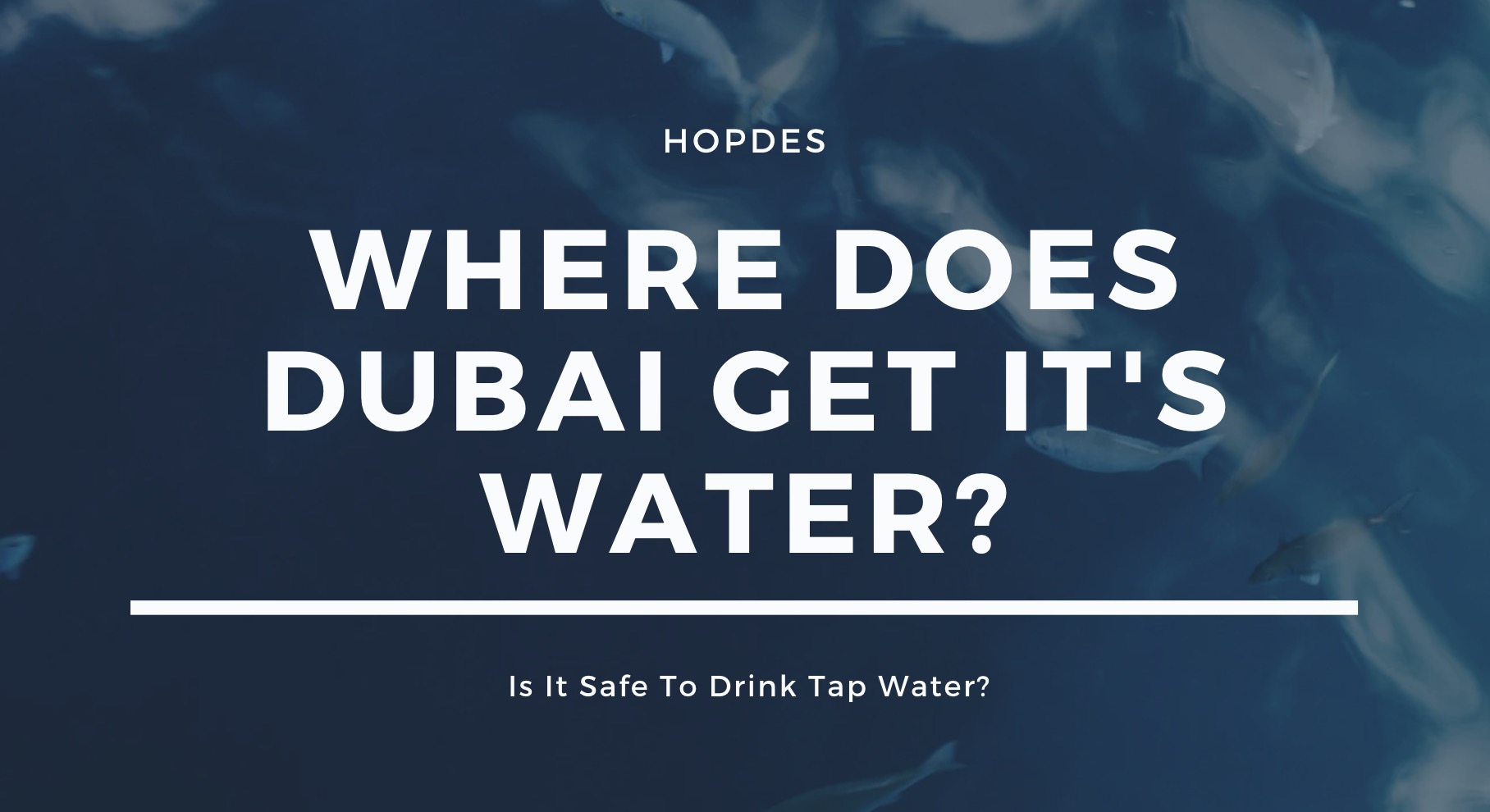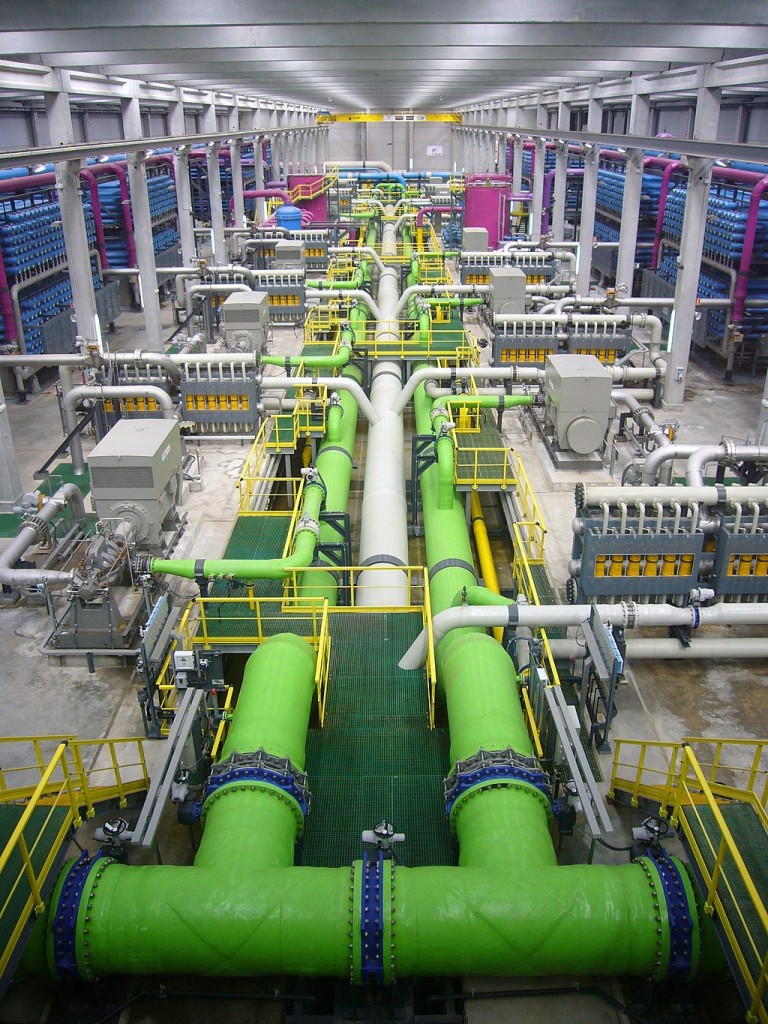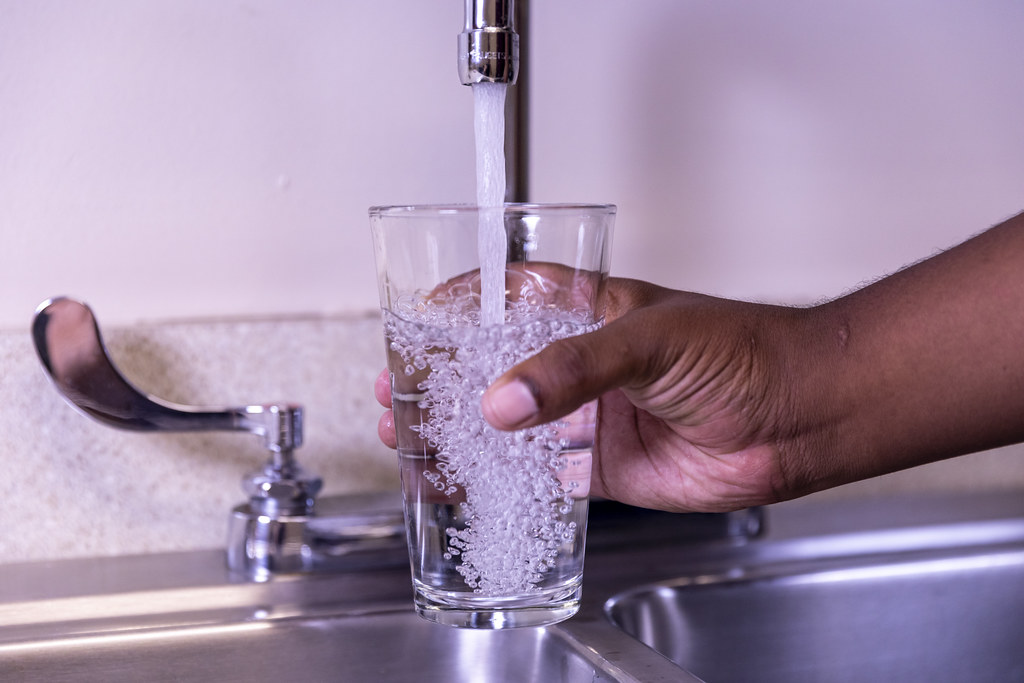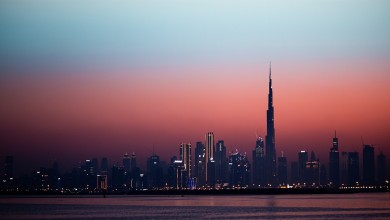
Dubai, an expansive metropolis in the UAE, has experienced massive and rapid growth over the past few decades. Due to significant demand and less supply, this city, nestled in the arid region of the Arabian Desert, needs a reliable water source for its residents and future developments.
But where does Dubai get its water from? You can drink water directly from the UK and the US tap water. Is this the same for Dubai? Is it safe to drink Tap Water in Dubai? Continue reading this article to learn about the primary water sources for Dubai and the associated details!
Must Read: On a Budget? Here Are The Most Affordable Areas to Live in Dubai
Where Does Dubai Get Its Water From?
Dubai has two primary water sources: The sea and the ground. Dubai relies mainly on desalinated seawater for its 80% of water supply. Operated by DEWA (Dubai Electricity And Water Authorities), the sea water is desalinated in two central plants located in Jebel Ali and Al Kaffah.
Freshwater is a highly-valued resource due to its limited availability. Even though water covers more than half of our planet, only 2.5% is freshwater, and just 0.77% is accessible. The rest is frozen.
Gulf countries like the UAE face significant gaps between water demand and supply; around 65% of the global desalination sectors operate in the Gulf countries, with the UAE alone accounting for 26% of the entire desalination capacity.

Dubai, known for its finance, business, and tourism, has scorching summers, sometimes up to 110 degrees Fahrenheit (43 degrees Celsius).
The region doesn’t get much rain. And out of the little it gets, 75% quickly disappears, and only 10% goes back into the underground water storage.
Because of this, the underground water in Dubai is often salty or dry. So, Dubai looks for other ways to get fresh water to support its cities and people.
Related Read: Worst Time to Visit Arizona? hint.. it’s the Summer Season
Water Sources In Dubai
Dubai has one of the world’s highest water consumption rates, with 146 gallons per person. The reason is the city’s arid climate and the rapidly growing population.
Currently, Dubai has a population of around 3 million. With its limited water sources in the desert, Dubai had to rely heavily on the sea.

The residential sector accounts for 60.6% of the water supply, while the commercial and industrial sector demands 24.9% and 3.7% of Dubai’s water.
Thankfully, most of Dubai’s major developments are near the coastline, which made things somewhat more manageable. But it was still a massive task. The fact that Dubai hasn’t faced any water shortages in recent years speaks to its effective planning.
Below are a few primary sources of water in Dubai:
1: Desalination Plants
As mentioned above, the desalination plants in Dubai are operated by DEWA, where the sea water is collected in the Arabian Gulf via intakes. Moreover, the water used to cool the Aluminium smelters in Jebel Ali is also sent to the DEWA plant.
Desalination requires energy, usually sourced from fuels like natural gas and diesel. After desalination, the water is directed into the supply system for household use.

While Dubai’s tap water is drinkable, it sometimes gives a distant taste that can change based on your location.
Desalination, though beneficial, can harm marine life by releasing chemicals and concentrated residues into the sea. The reliability of desalinated water in city regions is sometimes doubted due to the red tide phenomenon in the Arabian Gulf, which can compromise water quality.
Also Read: Fancy the Nature at These Lush Parks in Dubai
2: Treated Wastewater
Treatable wastewater is another brilliant alternative water source to meet Dubai’s massive water supply. The UAE’s government has spent and tends to spend more on wastewater treatment facilities, thus improving the urban sewerage systems.

This upgrade has resulted in a significant volume of treated water. This water type usually goes through whole or partial treatment before its final use. The UAE now has state-of-the-art treatment centres capable of providing advanced levels of water purification. The water treated at these centers is primarily used for road landscaping and garden irrigation.
3: Surface Water
Dubai’s surface water is almost negligible, including the freshwater ponds and floodwater. This is because the city receives a limited amount of rain and is dry for the whole year, thus causing the floodwater to leak into the ground.

At present, Dubai urgently needs to harvest and store its surface water. Hence, refilling the renewable aquifers with surface water could greatly improve Dubai’s water resources.
Moreover, the UAE is currently leading the way in storing groundwater through artificial recharge. This method is believed to be more secure and dependable than using tanks or other industrial storage systems.
4: Groundwater
The primary source of natural water in Dubai is groundwater. Currently, the UAE estimates about 22,600 billion cubic feet of groundwater. However, out of this, only 706 billion cubic feet is freshwater in Dubai.

Groundwater sources can be categorized into two types: non-renewable (found in deep aquifers) and renewable (located in shallow aquifers). Recently, there has been a notable improvement in the state of the country’s aquifers, thanks to efforts to reduce groundwater usage.
Additionally, the government has implemented various strategies, including regular monitoring and rules, to ensure the groundwater is used sustainably.
Is Tap Water In Dubai Safe To Drink?
The tap water by the water supply company in Dubai is usually considered safe to consume. However, you must practice appropriate precautions to eliminate potential water storage risks in your household tank.

Here’s what you need to do to ensure the tap water in Dubai is indeed safe to drink:
Your water tanks and the plumbing systems should be well-maintained.
The water tank and the pipes should get regular cleaning and flush by a company approved by the Emirates International Accreditation Center.
The center regularly requires a water sample to mark it safe for drinking, checking all the safety parameters.
Can You Cook With Dubai’s Tap Water?
Since the water is perfectly safe to consume, almost all restaurants and eateries in Dubai use tap water for cooking. Besides the safety, if restaurants start using bottled water, the food cost will skyrocket as bottled water is 50 times more costly than tap water.

However, if you are still skeptical about using tap water in cooking at home, consider installing a water filter and avoid bottled water for a more eco-friendly approach.
Is Tap Water In Dubai Bad For Your Skin And Hair?
Another common complaint Dubai residents have from tap water is their skin getting dry and their hair turning grey. People say they have experienced a notable hair fall since moving to Dubai.
However, there is a partial truth to this claim. The chlorine content in Dubai’s tap water does cause the skin and scalp to dry slightly. But the primary cause of this draught is something else.

Residents in the UAE spend 80% of their time indoors in the air-conditioned rooms that are common to migitate humidity from the space, thus causing dryness. But there is no evidence of tap water causing hair discoloration.
Moreover, there’s a significant demand for anti-hair fall shower filters in Dubai. This does not mean shower filters aren’t beneficial. Indeed, they can reduce water hardness to a degree.
Should You Buy Bottled Water?
On average, a resident in Dubai drinks about 275 liters of bottled water annually, which accounts for one of the highest consumption rates globally. There are a few reasons for this preference. Firstly, the taste. While most bottled water brands use tap water as a base, they often add minerals to enhance the flavor.
The issue with reverse osmosis (RO) is its ability to extract water from its natural minerals, altering its taste. Fortunately, this issue can be handled using home water filters to reintroduce those minerals.

Convenience and concern also lead many people to bottled water consumption. It is easy to find bottled water, so many prefer avoiding the tap. But for some, there’s genuine concern about tap water, often based on groundless myths regarding its health impacts.
Yet, bottled water has its issues. Even with Dubai’s strict regulations, potential contamination can occur post-production. The plastic bottles, for instance, might be exposed to Dubai’s intense heat for extended periods before reaching consumers.
This exposure, especially during the peak of summer, can increase the risk of chemicals like BPA from plastic contaminating the water, especially if bottles are reused. Hence, it is wise to decide on bottled water use and its environmental impact.
Next Read: Dubai Airport expansion project worth $33bn to restart after Covid-19 delay
The Future Of Water In Dubai – Final Thoughts
The demand for water in Dubai is predicted to experience a significant increase in the coming years, mainly because of the expected growth in population and the city’s industrial sector.
However, water demand in industries like agriculture will likely stay stable due to limited fertile lands and decreasing groundwater supplies. Advances in desalination technology are anticipated to boost water availability without skyrocketing costs.
Meanwhile, the International Centre for Biosaline Agriculture in Dubai is researching crops that can thrive in salty conditions, which might lessen the over-reliance on freshwater sources.
 Reviewed by
Reviewed by 




